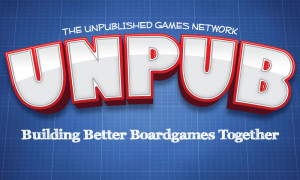Quite some time ago, Chris Norwood posted a list of his top ten games that he plays with his wife. That list in turn was inspired by The Dice Tower podcast Episode 189, in which Tom Vasel and Eric Summerer shared their own top ten games that they play with their wives. Those lists are both several years old, but the topic is timeless, so I thought I'd confer with my wife Kathy so that we could compile our own list.
Ridere, ludere, hoc est vivere.
Friday, October 17, 2014
Friday, October 10, 2014
Point tracking methods
 |
| Robin Lees, host of the podcast Whose Turn Is It Anyway? |
Robin Lees @RMBLees
Something many games suffer is the bad design of point trackers. Snaking or moving in logical steps. What’s good? What’s bad? Discuss?
Something many games suffer is the bad design of point trackers. Snaking or moving in logical steps. What’s good? What’s bad? Discuss?
Friday, October 3, 2014
Spring and summer photos
Friday, September 26, 2014
Feminism Discourse Part 3: Who else has asked this question?
This post is the third in a series of three essays on the topic.
Part 1: Why are women the exception in boardgame design?
Part 2: Who are the women that design games?
I'm certainly not the first to question the disproportion of men to women in the boardgaming hobby. Here are just a few recent efforts (and one not-so-recent) to shed light on the question in one form or another.
Part 1: Why are women the exception in boardgame design?
Part 2: Who are the women that design games?
I'm certainly not the first to question the disproportion of men to women in the boardgaming hobby. Here are just a few recent efforts (and one not-so-recent) to shed light on the question in one form or another.
Friday, September 19, 2014
Feminism Discourse Part 2: Who are the women that design games?
This post is the second in a series of three essays, following
Feminism Discourse Part 1: Why are women the exception in boardgame design?
Last week I started to consider the question about why it seemed that there were so few female game designers. But that post admittedly begs the question: Is it actually true that game designers are disproportionately male, or is it just that male designers are simply better known? I decided to actively identify women designers and some of the games they've designed to see if I could validate the notion that they are rare - or if not, to investigate why they are not as well known as male designers.
Feminism Discourse Part 1: Why are women the exception in boardgame design?
Last week I started to consider the question about why it seemed that there were so few female game designers. But that post admittedly begs the question: Is it actually true that game designers are disproportionately male, or is it just that male designers are simply better known? I decided to actively identify women designers and some of the games they've designed to see if I could validate the notion that they are rare - or if not, to investigate why they are not as well known as male designers.
Friday, September 12, 2014
Feminism discourse: Why are women the exception in boardgame design?
 |
| Susan McKinley Ross Photo: ChiTAG |
Friday, September 5, 2014
My candidates for the 2014 Dice Tower Top 100
 |
| (c) Queen Games Used by permission |
Saturday, August 30, 2014
Confusion: Do I get it?
:strip_icc()/pic725683.jpg) |
| (c) Stronghold Games Used by permission |
Friday, August 22, 2014
Third annual-ish "What to pack for a vacation"
I like looking into which boardgames work for taking on family summer vacations. The last time I looked at this question was July 2012. This year we have plans to visit points of interest in southwest Virginia - the Skyline Drive, Lexington, the Natural Bridge, and Monticello. We specifically will be leaving laptops at home. Anticipating some quality family downtime, of course that means boardgames.
Saturday, August 16, 2014
WBC 2014 Saturday and Sunday: WS&IM fleet action, Acquire semifinal, and demos
One quick go-back on my earlier posts recounting my World Boardgaming Championships experience this year: The very first thing that Keith Ferguson and I did Thursday morning, on our way to the registration desk, was to bump into Josh Tempkin of Tall Tower Games. He spent a good part of the convention demonstrating several of his games:
- "WarTime," which I've written about before as a fascinating, innovative real-time wargame involving sand timers
- "Throne Dice," which surprisingly I still haven't taken the time to play
- "Commissioner," which I learned at UnPub 4 as "Lesser Evil"
Thursday, August 14, 2014
WBC 2014 Friday: WS&IM loss, Acquire victory, and EIC demo
Wednesday, August 13, 2014
WBC 2014 Thursday: TPA and a day of not winning
Last week I conducted my fourth annual pilgrimage to the World Boardgaming Championships in Lancaster, Pennsylvania, the summer highlight of my gaming year. I had a fairly loose schedule in mind, with only a few key tournaments that I specifically wanted to hit.
Thursday, July 3, 2014
Second annual List of Shame: The Unplayed Games of 2014
Last year about this time, inspired by Chris "GamerChris" Norwood, I posted my "secret shame" - a list of unplayed games sitting on my shelves. When I did that, I thought surely, I am now motivated to work my way down this list and play all these games - or pass them along to someone else who will. Surely, in the next year, say, I will have played nearly all my games and the list will be shorter.
Thursday, June 26, 2014
UnPub Mini Chantilly Recap
Last Saturday, Keith Ferguson ran an UnPub Mini event at Game Parlor Chantilly. (I helped a little.) We had about twelve designers and about 20 gamers playtesting over the course of the 11 hours that the store was open that day. It was about as successful as we could have wanted. For my part, I got to playtest "East India Company" and "Reactor Scram" one time each, as well as to play about four other games, though there were many more I wish I could have played.
Sunday, June 15, 2014
More designers for 21 June UnPub Mini in Chantilly, Virginia
As I mentioned in a post on May 8, there will be an UnPub Mini event this Saturday 21 June at
Game ParlorWe now have a full slate of eleven designers lined up, so we have plenty of opportunities for gamers to come and try out new game design prototypes and provide feedback to the designers.
13936 Metrotech Drive
Chantilly, VA 20151
Friday, May 30, 2014
Leaner, meaner "Company"
 I've been giving some thought as to how to streamline "East India Company." There are a few approaches I can take. The scientist in me wants to make one change at a time and test each change independently. I've heard at least one designer specifically recommend that approach so that you always know the effect of each specific design change. But my gut tells me to identify the essential core elements of the game, eliminate everything else in one big purge, and then see if anything should be added back in, painstakingly, one element at a time.
I've been giving some thought as to how to streamline "East India Company." There are a few approaches I can take. The scientist in me wants to make one change at a time and test each change independently. I've heard at least one designer specifically recommend that approach so that you always know the effect of each specific design change. But my gut tells me to identify the essential core elements of the game, eliminate everything else in one big purge, and then see if anything should be added back in, painstakingly, one element at a time.Monday, May 26, 2014
East India Company returns to the shipyard
Last February I mentioned that I'd submitted a prototype of "East India Company" to a publisher at UnPub 4 to evaluate for publication. I just heard back from them, and they
do not find it to be a good fit for our upcoming releases. At the end of the day, the play time and complexity does not create a conducive product for a broad success, as the trends are leading away from complex play and longer play times.I can certainly accept that evaluation. Game length has been a challenge with "EIC" since its inception, and it certainly is complex. Given the nature of today's game market, I agree that its appeal as it currently stands would probably be somewhat narrow.
Thursday, May 8, 2014
UnPub Mini Chantilly on Sat 21 Jun
Designers and boardgamers in the northern Virginia area, mark your calendars: Saturday 21 June will be an UnPub Mini event at
Game Parlor
13936 Metrotech Drive
Chantilly, VA 20151
Friday, April 25, 2014
Luck, skill, and research
Last week I opened a discussion on my effort to quantify game characteristics. I had in mind that I would explore this question on my own, somewhat in a vacuum, based on my own experience and opinions, as something of an exercise to see what defensible conclusions I might reach.
Sunday, April 20, 2014
Thoughts on quantifying game characteristics
Gamers tend to characterize games in terms of luck vs. skill, replayability, lightness vs. depth, and so forth. These qualitative assessments help us to evaluate what we might like or dislike about a game before we've played it ourselves, or help to consider which games might be appropriate for a specific social, tournament, or convention setting. These characterizations also help in establishing design goals and parameters as well as assist publishers in determining which potential titles will fit within their product line.
Friday, April 11, 2014
Reactor Scram: early playtesting
I have finally started working in earnest on a co-op idea I've had percolating in my mind for the last few weeks. The theme is that the players are workers in a nuclear reactor plant whose maintenance has been neglected, until finally the bad day comes when everything seems to break at once. The goal is to get the plant into a "safe condition" without melting down a core or irradiating any of the workers.
I ran a couple of solo playtests. I won one and lost one, which made me think that I've got the initial balance at least coarsely in the right neighborhood. What surprised me was how quickly each game completed - roughly ten or fifteen minutes per game. I usually have the opposite problem with the games I design - play times that run way too long. Right now I've got a game that takes more time to explain than it does to play. So I want to figure out some way of extending the gameplay as well as the "story arc" so that I'm not just "making it longer" for the sake of making it last.
 |
| First prototype of "Reactor Scram" |
Subscribe to:
Posts (Atom)

/pic2660122.jpg)

